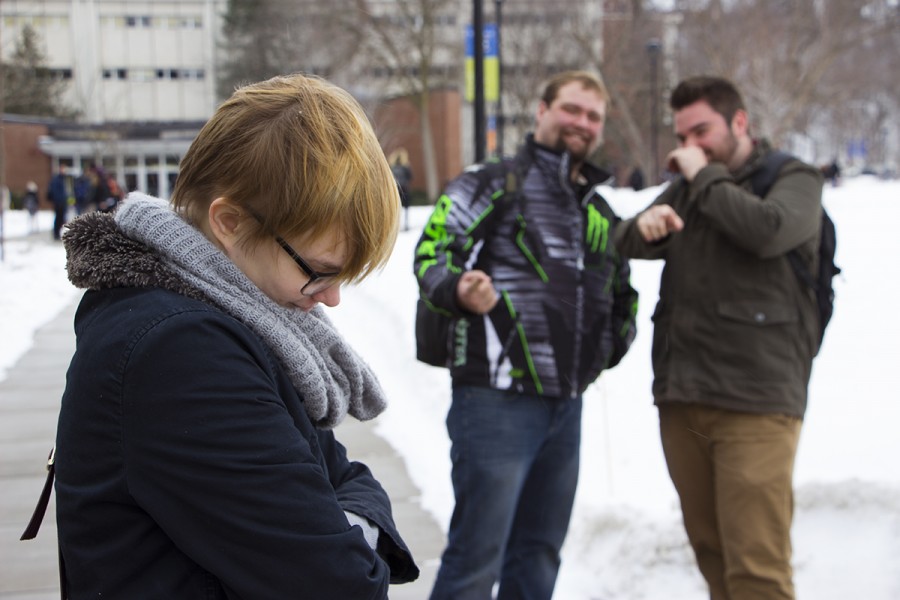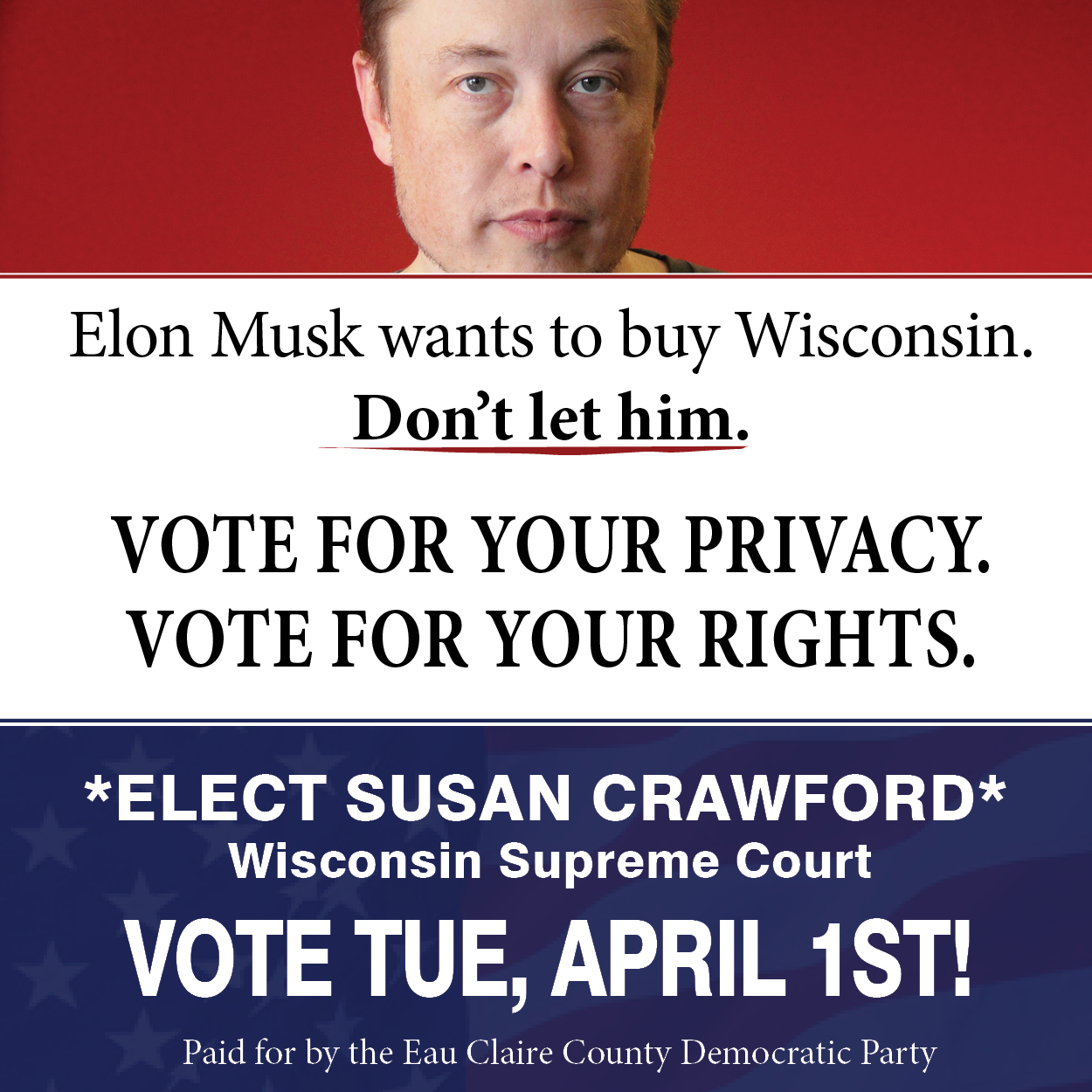Stop catcalling women: it doesn’t make us feel good
This all-too-common form of harassment continually degrades and objectifies women of all ages
Photo by Kendall Ruchti
Anderson is rudely harassed on her way to class by a couple of scumbags with no manners.
January 27, 2016
It was a day like any other day. There I was, strolling peacefully down Water Street, enjoying the crisp fall air and indulging in my contentedness when, suddenly, a cacophony of hollering men interrupted me.
Flabbergasted, I turned around to discover the source of all this hooting and hollering. Apparently in the midst of my pleasant stroll a group of middle-aged men in a rusty old pickup truck decided it was necessary to point and wolf-whistle at me as they drove by.
Needless to say, my good mood vanished. My feeling of contentment morphed into anger and embarrassment. Was that supposed to make me feel good? Was I supposed to take those jeers and yells as a compliment?
On the contrary, getting yelled and whistled at by a group of creepy old men made me feel subhuman. I felt humiliated and objectified by these men. Sadly, this was not the first time something like this happened to me.
Catcalling is not an anomaly. I can almost guarantee that if you asked every woman whether they have experienced catcalling, the majority of them would say yes. And, if you ask those same women if they enjoyed getting catcalled, they will most likely look at you funny.
Getting catcalled is not fun, nor does it feel like anything remotely close to a compliment. In fact, it feels more like an insult.
From my own experiences, I can say that catcalling makes me feel like an object. When men yell at me on the street, it feels as though they only see me as something to look at; an object rather than an actual human being.
Sadly, catcalling is a shared experience amongst many women. Women and girls from all over the world continue to experience harassment in public places.
This summer, The Huffington Post asked women to tweet about the first time they got harassed, using the hashtag #FirstHarrassed. The results were unsettling.
One woman tweeted that her first experience with harassment occurred when a 30-year-old man slapped her on the butt as he rode past on his bicycle. She was only six. Many women tweeted about how, at ages as young as 10 and 11, men would make lewd comments about their bodies while passing them on the street.
According to a study conducted by Cornell University and Hollaback!, a non-profit organization to end street harassment, 85 percent of American women have experienced some form of street harassment by the age of 17. The study also indicates that the majority of women around the globe are first catcalled between the ages of 11 and 17.
Catcalling wcompletely baffles me. What is it that makes men believe they are entitled to yell whatever they want at women? Do they think we enjoy it, or do they just have no respect for women whatsoever? Either way, it needs to stop.
As I was reading through the slew of #FirstHarrassed tweets, I thought back to the first time someone catcalled me. I must have been about 10 or 11. I was walking through my neighborhood, doing whatever 10-year-olds do, when someone suddenly whistled at me and screamed an obscene word.
I distinctly remember my face turning bright red as I dropped what I was doing and hid in my room for the rest of the afternoon, feeling a little less human than before. Though it has been eight years since my first catcalling experience, I can still remember every detail to this day.
Getting yelled at on the street is not a fun experience. No matter how ‘complimentary’ the words may be, catcalling is never a positive experience.
If you really want to compliment someone, do so like a normal person. Resist the urge to scream at them on the street. Women are human beings, not objects for your viewing pleasure.



